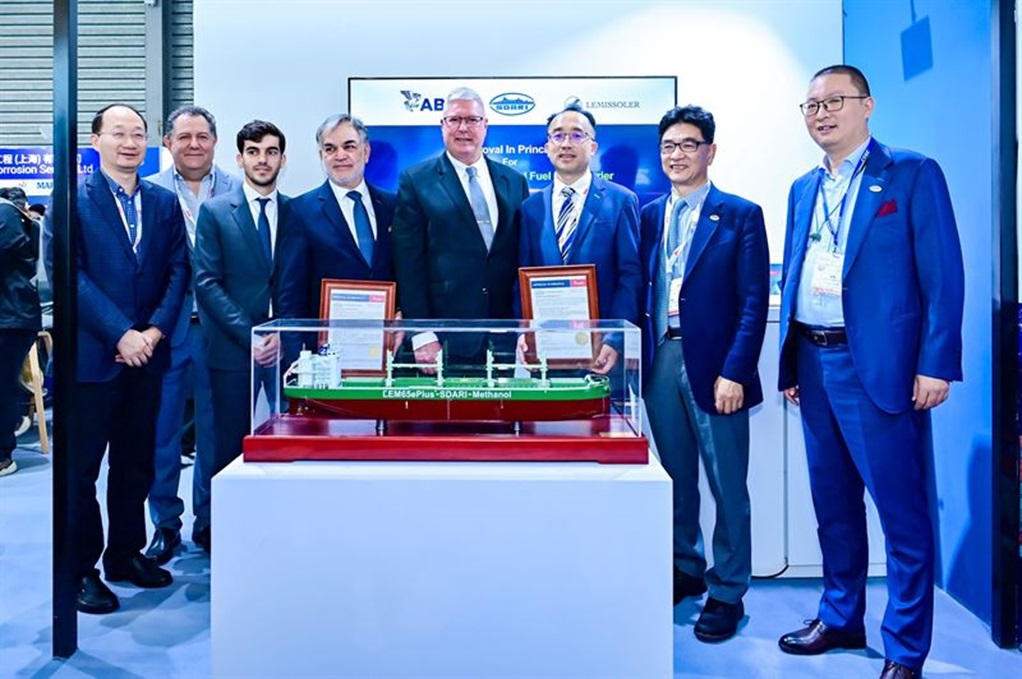Lemissoler Navigation Ltd. and Shanghai Merchant Ship Design and Research Institute (SDARI) received ABS approval in principle (AIP) for its design of a 65K DWT methanol-fueled ultramax bulk carrier, the first such methanol vessel for China’s shipbuilding industry.
“ABS understands and is deeply involved in supporting clients with decarbonization solutions. Getting to net zero by 2050 is an ambitious target for the industry, requiring more renewable energy options, zero-carbon fuels, carbon-neutral fuels and carbon capture technologies. Lemissoler and SDARI’s new design using methanol is an important piece of the puzzle to create a more sustainable shipping industry,” said Christopher J. Wiernicki, ABS Chairman and CEO.
The design explores the feasibility of using methanol as fuel to accelerate the reduction of carbon emissions to reach the IMO’s net-zero target by 2050. With the implementation of EU ETS and FuelEU regulations, the vessel, when burning green methanol, will have a greater potential to reduce the cost related to carbon emissions. The vessel has been thoroughly optimized and its preliminary Energy Efficiency Design Index (EEDI) was reviewed and indicated that the vessel exceeds EEDI Phase 3 standards. ABS completed design reviews based on class and statutory requirements.
“We at Lemissoler are once again pioneering new technological and innovative designs for our Dry Bulk fleet. The collaboration with SDARI and ABS is proof of how much can be achieved collectively. This new evolutionary design is another step toward Lemissoler’s target to become net zero by 2045,” said Philippos Philis, Chairman and CEO of Lemissoler Navigation Ltd.
“As the designer of this innovative methanol-fueled vessel, SDARI is always committed to the tailor-made and practical solutions for customers’ demands, offering an optimized design to satisfy future maritime rules and regulations,” said SDARI Vice President Zhou Zhiyong.
More information on ABS services regarding methanol and other alternative marine fuels is available here.
Source: ABS.
Tags: Carbon Capture, China, Methanol, Shipbuilding



Recent Posts
Goltens Partners with Orcan Energy to Expand Marine Waste Heat Recovery Solutions
NWSA Launches First Incentive Program for Zero Emission Trucks in Washington
IHI and Vopak Partner on Ammonia Terminal Development in Japan
Chimbusco Pan Nation Completes First B30 Marine Gasoil Delivery in Hong Kong
ITOCHU Announces Newbuilding Order for Ammonia Bunkering Vessel
India Launches Incentive Scheme for Electric Trucks under PM E-DRIVE Initiative
Royal Caribbean Welcomes LNG-Fueled Star of the Seas to Its Fleet
Swire Shipping Launches ‘Voyage to Zero’ to Help Customers Cut Scope 3 Emissions Swire